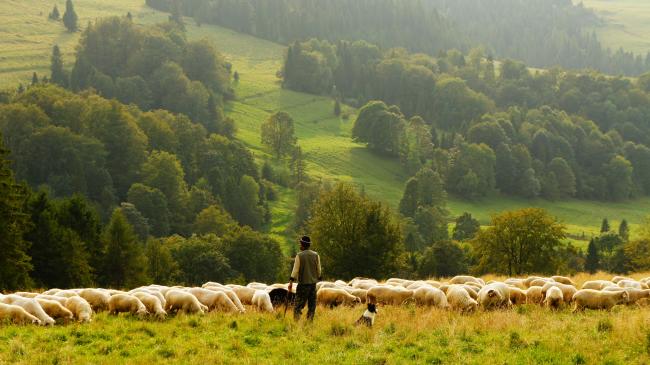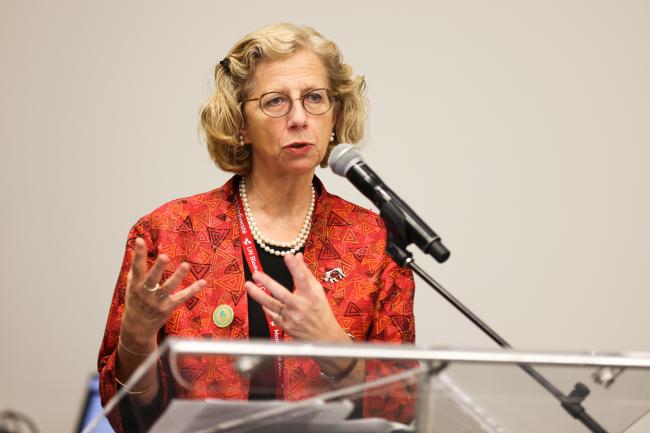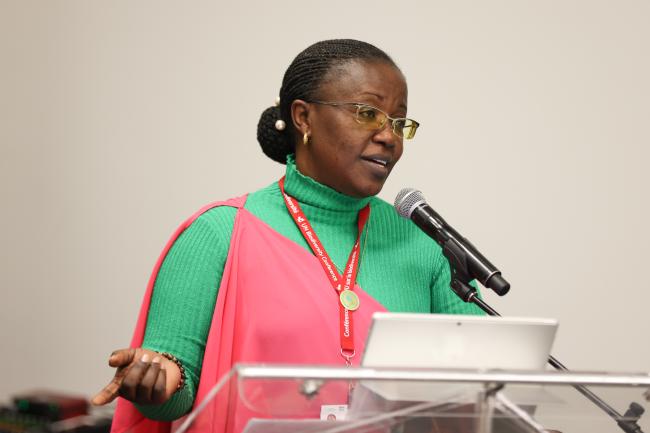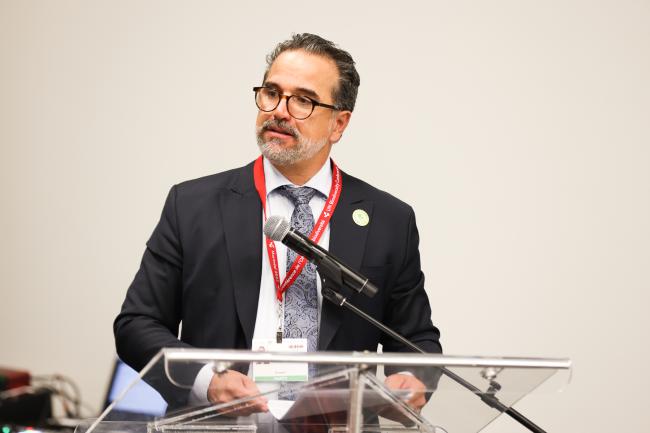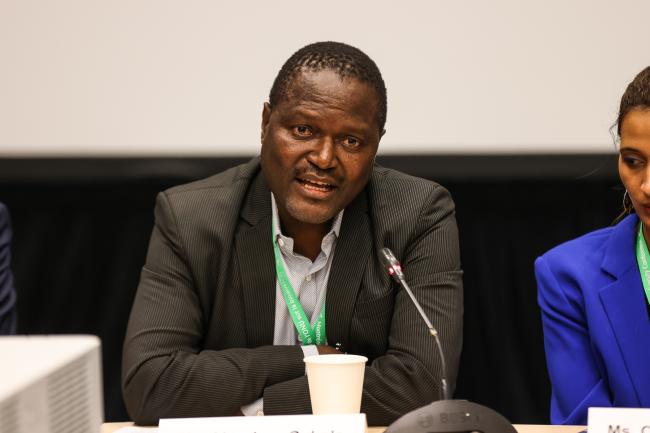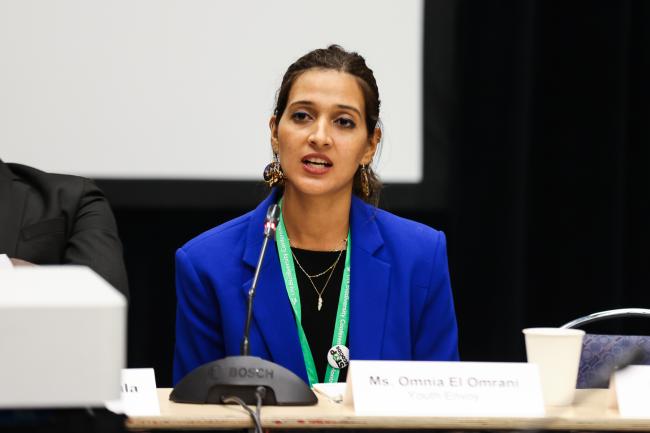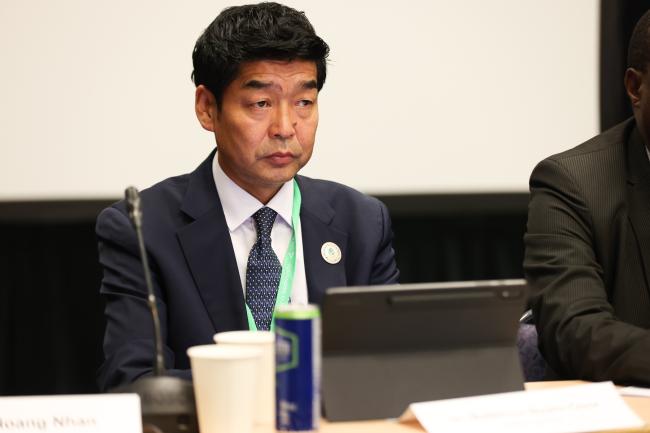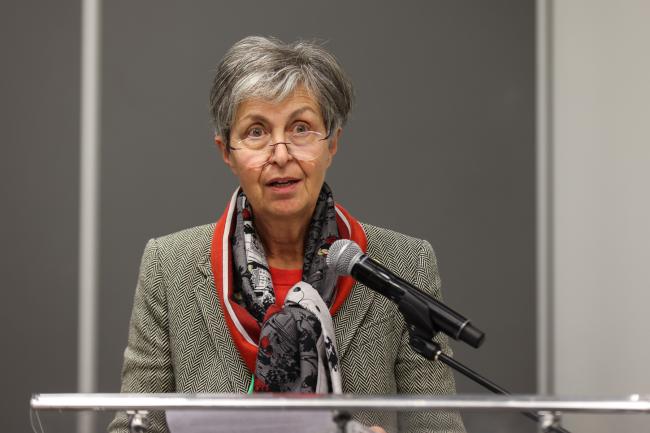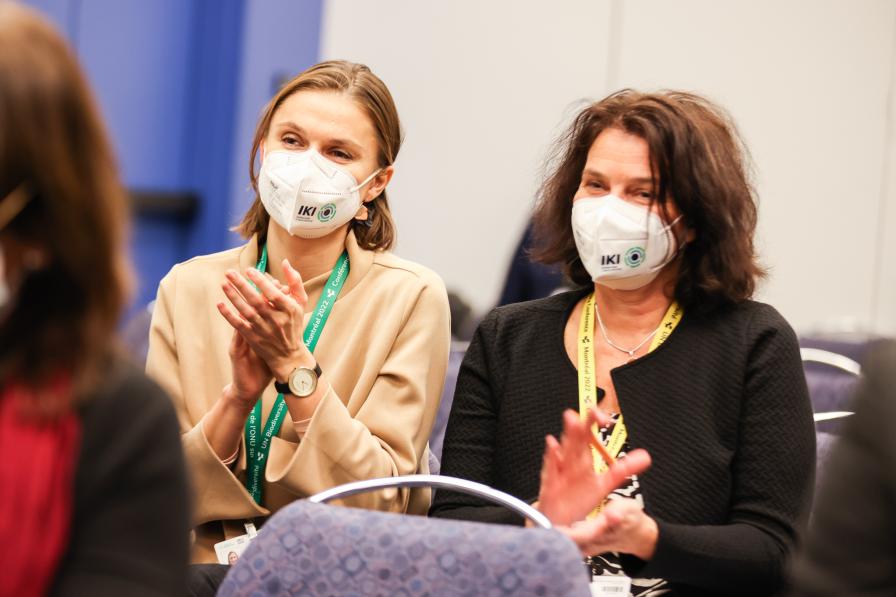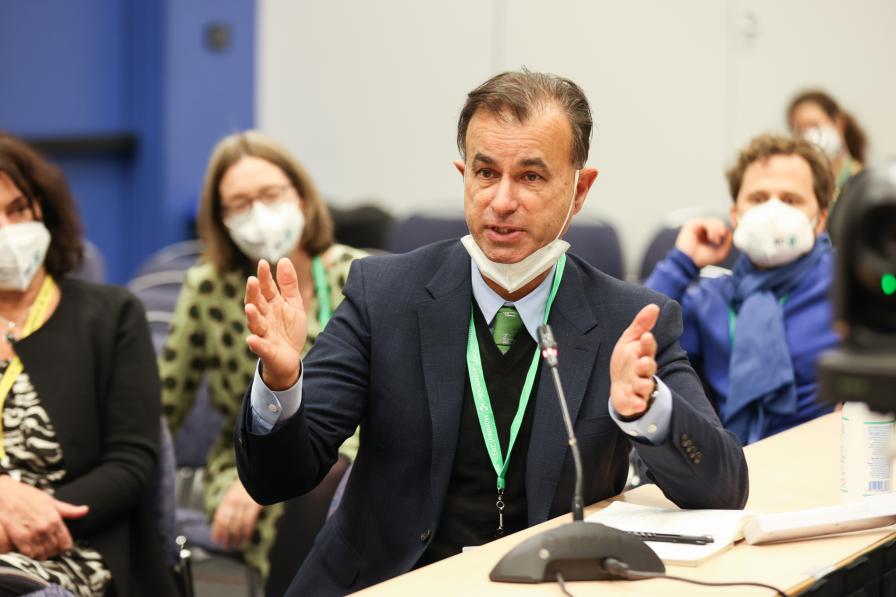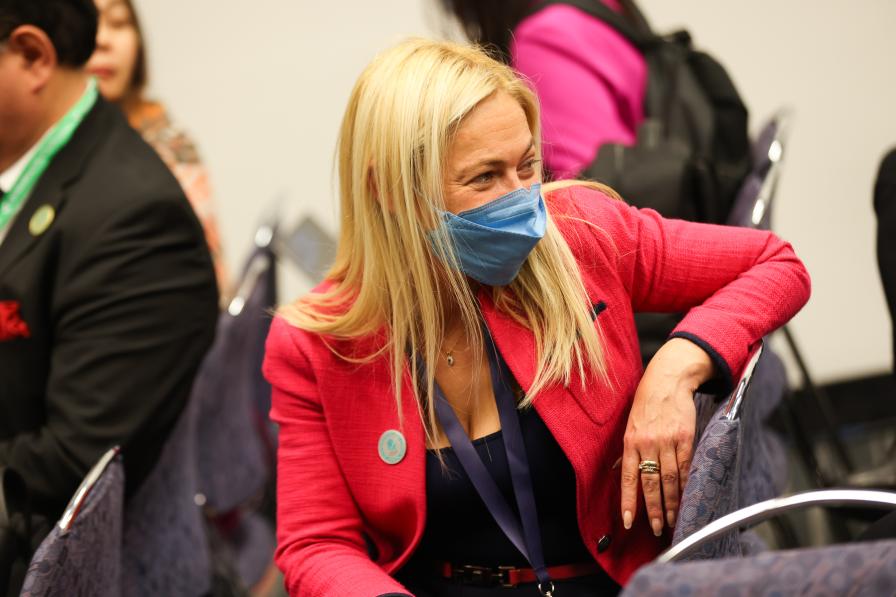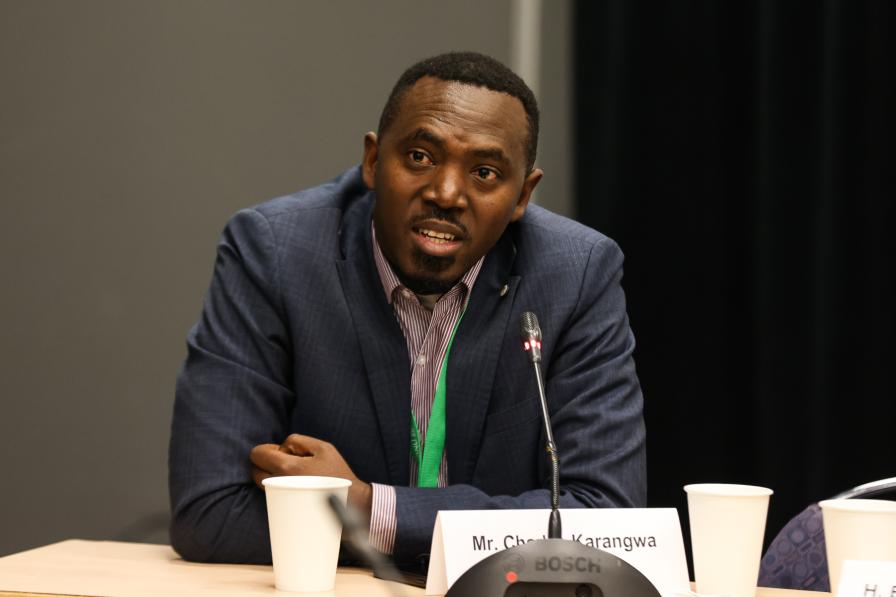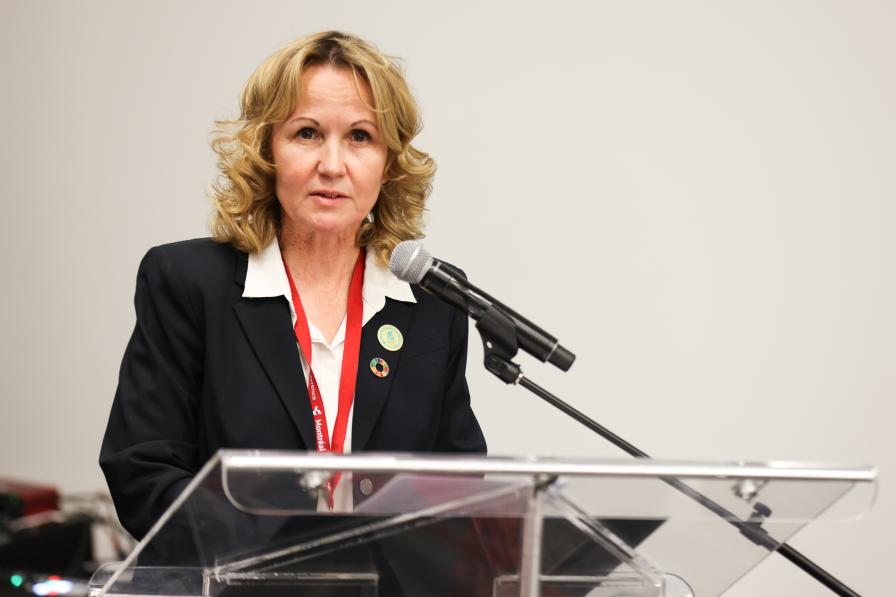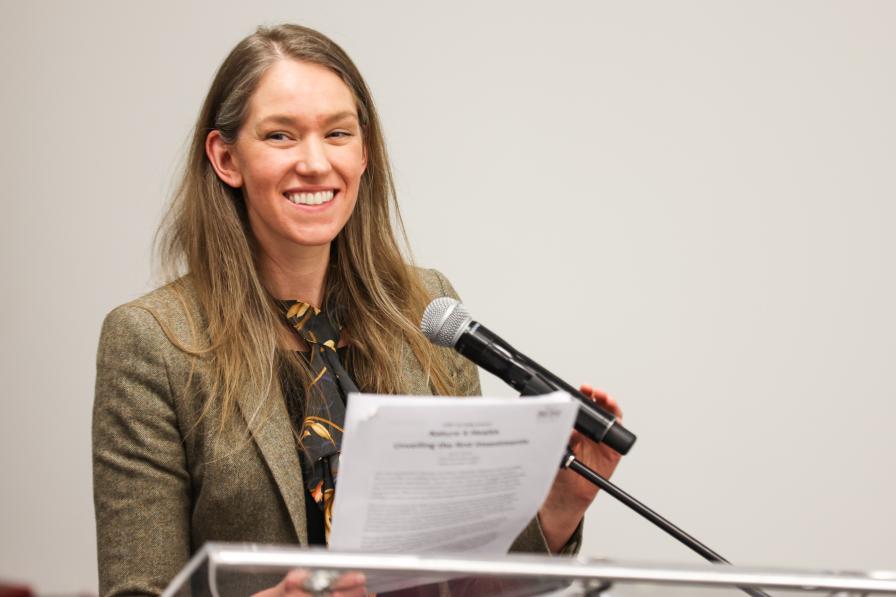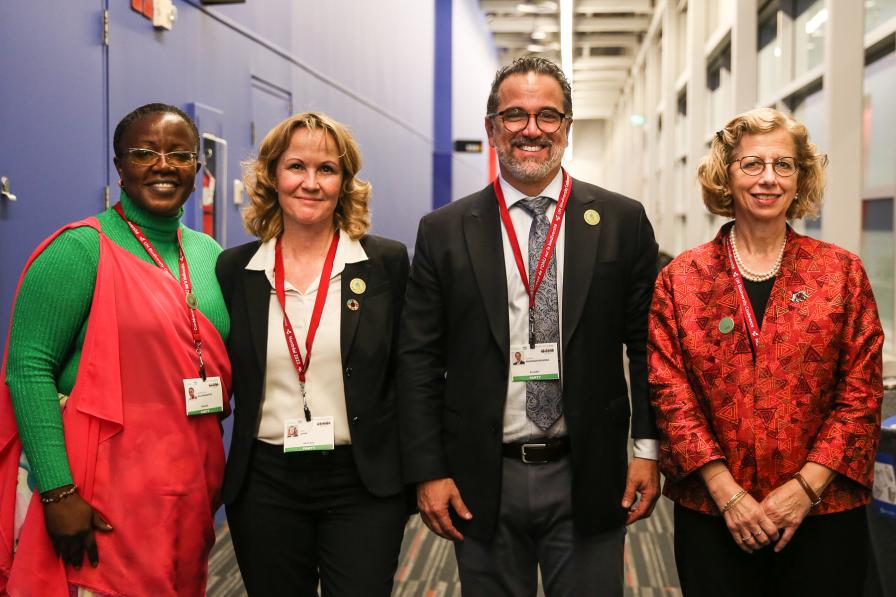About
This side event unveiled the first six countries—Ecuador, Ghana, Mongolia, Rwanda, Vietnam, and Zambia—to join Nature for Health to demonstrate the linkages between biodiversity, climate change and pandemics and to advance the implementation of One Health at the national level.
Ecuador, Ghana, Mongolia, Rwanda, Vietnam, and Zambia are the first six countries to join Nature for Health (N4H), which aims to demonstrate the linkages between biodiversity, climate change, and pandemics and to advance the implementation of One Health at the national level. This event unveiled the first investments in this initiative.
The event was moderated by Catherine Machalaba, EcoHealth Alliance. Addressing participants, Inger Andersen, Executive Director, UN Environment Programme (UNEP), noted that although nature’s benefits for human health are vast, zoonotic diseases emerge when we cause it to “get out of whack.” She underscored that irrespective of how COVID-19 originated, it is expensive to tackle. She highlighted the N4H initiative for global action to prevent pandemics, strengthen environmental aspects related to health, and integrate a cross-sectoral approach for animal and human health, noting it depends on the country partners who, with generous donors, scientists, and activists, are showing everyone how to start.
Recalling that human’s misuse of nature is a chief cause of disease, Jeanne d’Arc Mujawamariya, Minister of Environment, Rwanda, highlighted her country’s One Health approach and its strategic plan which, she noted, incorporates non-traditional issues such as overall governance, disaster risk, and education, among others. She shared Rwanda’s plan to put in place, among others, surveillance systems to better address outbreaks and research facilities to respond to human-animal zoonoses.
Gustavo Manrique Miranda, Minister of the Environment, Water and Ecological Transition, Ecuador, mentioned that his country is mobilizing resources to enable early action against diseases of wild origin on human health, through the One Health approach. He lamented that 30% of children in his country suffer from malnutrition, noting that Ecuador has begun to improve biosecurity systems in controlling wildlife-based diseases through biodiversity conservation and expressed hope that other countries will join them at the regional and national levels.
Steffi Lemke, German Federal Ministry for the Environment, Nature Conservation, Nuclear Safety, and Consumer Protection (BMUV), noted that N4H will be expanded to 50 countries with high zoonotic risk, highlighting her country’s contribution of €50 million to this issue area. She called on donor countries to contribute to the N4H multi-country trust fund. She said lessons learned will be significant in the implementation of the post-2020 global biodiversity framework (GBF) and urged that One Health be part and parcel of the GBF.
A short, animated video explaining the rationale for investing in upstream environmental drivers of zoonotic pandemics through N4H was then shown.
Charles Karangwa, International Union for Conservation of Nature (IUCN), said challenges to integrating health and biodiversity include: a silo effect between sectors; loss of knowledge and resources for making connections between sectors; and the need for a whole-of-society approach to work together, including, among others, civil society, the private sector, and academia. He described IUCN’s work addressing transboundary ecosystems within the One Health context, including protecting the habitat of mountain gorillas from humans during the pandemic to avoid the possibility of catching COVID-19 from humans.
Batkhuu Nyam-Osor, Advisor to the President of Mongolia, highlighted that by the end of 2022, the country will have 90 million livestock, and that the government is committed to securing the health of herders and their livestock. In this regard, he drew attention to a government initiative addressing human health, livestock health, and biodiversity, noting support from the N4H in implementing this inter-ministerial approach.
Absalom Sakala, Ministry of Land, Natural Resources and Environmental Protection, Zambia, identified several challenges facing his country including, among others, increasing illegal trade in wildlife products, low investment in surveillance facilities along national boundaries, and the need for mindset changes based on evidence demonstrating the linkages between close contact between wildlife as the cause for the growth of zoonoses.
Omnia El Omrani, Youth Envoy for the COP 27 President, advocated mobilizing public pressure for behavioral change and allocating resources for nature, human health, and wellbeing. She urged medical sectors to promote One Health, and called for consulting and learning from youth practitioners, who want to prevent crises, not just respond to them.
In the ensuing discussion, participants and panelists raised, inter alia: the importance of context-specific capacity building materials; creating platforms to amplify and elevate the work that, for instance, youth and N4H are doing; and the need to leverage both knowledge and finance to boost the linkage between health and nature.
Closing the event, Monique Eloit, Director General, World Organisation for Animal Health, underlined the critical role of veterinary services; highlighted that the One Health approach will foster links between biodiversity and health; underscored the importance of prevention as a key way to transform our relationship to nature; and called for sustainable financing to implement the approach and support the N4H initiative.
Organizers: BMUV, N4H, International Climate Initiative (IKI), UN Development Programme (UNDP), World Health Organisation (WHO), World Organisation for Animal Health, International Union for Conservation of Nature (IUCN), EcoHealth Alliance
Contact: Amaëlle Clarisse Oberson amaelle.oberson@un.org
For more information: https://www.cbd.int/side-events/4823

